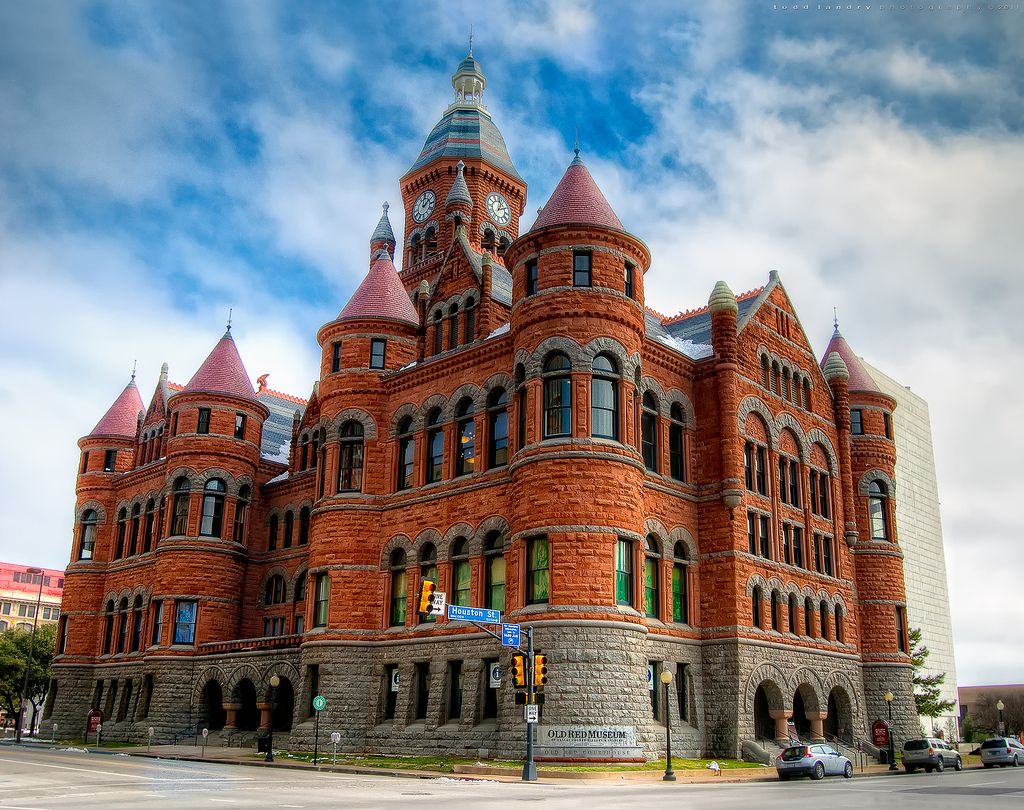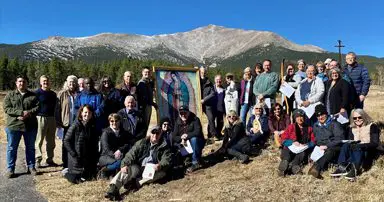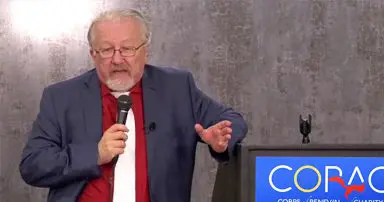Dallas, Texas – I am ashamed. I had a lovely, private group dinner meeting in Dallas on Thursday evening. The presentation went very well, very focused on key practical things people need to keep as priorities as we navigate the flood of disorder rising against us. Then, in the Question and Comment period, a fellow spoke of the idea floating around in some circles that, at the height of crisis, angels will visibly come and lead those of us of faith to safe refuges. I firmly and bluntly said that is not going to happen. He got angry. Then I got angry. We had, perhaps, five minutes of very combative discussion. I am primarily responsible for the combativeness.
On most exotic theories on signs and wonders I keep my peace. I think the overwhelming majority are in error, but I am content that God will correct all errors in His own time for people of good heart. But both the idea of the rapture and that of angels leading people to safe refuges while the battle rages on outside hit two very big hot buttons in me. In the first place, I think it involves a huge amount of vain presumption, for everyone who believes such things also believes they are certainly part of the select who will be taken. That, I think, is based on facts not in evidence. Few reading this article have ever intentionally attacked or sought to undermine the faith. But we sure have not defended it effectively. If we had, we would not find ourselves in the straits we are in. The unconscious arrogance underpinning such beliefs offends me. But that is not enough to set me off intemperately.
What trips my trigger is a deep fear. I do not just think these two beliefs are errant, but that they are so deadly dangerous that they are satanic deceptions and relatively recent ones at that. The idea of angels visibly taking you to refuge is only a few decades old. The idea of the rapture is barely 200 years old. The reason these scare me is that, if you set your certain hope in this, when the decisive moment comes and you are not taken you are liable to enter into mortal despair at the realization that you are not chosen, after all. I think this is a way the satan intends to glean a few more souls of otherwise faithful people at the very moment his gambits of the last century come crashing down on him.
I have come to a grudging internal peace with the reality that a multitude of people will never acknowledge God, no matter how bad they make things. I once foolishly hoped and thought that, once they saw what they had wrought, almost all would repent. One can see now that, in a crumbling polis, many are just doubling down on the hubris that has caused it to crumble. They are lost. But it inflames me still that otherwise faithful people could be gulled into a false hope that could easily lead them to the sin of existential despair at a critical, mortal moment. So I react badly to such talk.
Yet if it is that honorable fear that inflames me, my purpose should not be to enter into combat with those who espouse it, but to speak in a way that gives them reasonable pause, to simply hedge their bets on such things so that, when the critical moment comes and they are not taken, they do not enter into existential despair. That would accomplish my purpose effectively – and without fireworks. The benefit of this exchange is that it has caused me to survey all the hot buttons I can think of and consciously try to develop ways of acting so as to help build people up and prepare them for all eventualities instead of tearing into them.
I do not regret my sometimes combative nature. If someone is openly – or even furtively – attacking the faith or the faithful, I am glad to make my stand forcefully and determinedly. But when that honorable combativeness spills over onto those in our own ranks, I sin. I will find a Priest to make confession with this weekend and I ask each of you to pray that I will do a much better job of discerning when to fight and when to act with reserve.
*********
As we contemplate the things of God, all too often we mistake a legitimate insight for a schematic. I am always mildly annoyed when someone tells me they have divined precisely what a section of Scripture “means.” Scripture has great depth and many facets. The mind of God is like a great ocean – and we love to deceive ourselves that we can capture the fullness of it in a teacup of ocean water.
God forms each of us to, if we will, discern certain aspects of His reality. But even the best of us never get much more than a teacup of wisdom from the ocean of His being. That includes the saints. I sometimes get very uncomfortable when some people conclude that, because I discern some aspects well, that I am intimate with the reality of God. I just have my teacup. That being said, here is some of what I have gotten from the teacup of wisdom God has granted as my portion.
The thing that excites me is that when the Eternal Son took on our humanity, He became part of the family of man. He was no longer only our ruler; He is our very brother.
Through sin, death came into the world. It is banal to argue that God should not have allowed us to choose sin. Had He done that, we could have never been more than favored pets in His Kingdom. God made us in His image, in large part, by giving us moral agency. We could choose good or evil. That has a multitude of consequences: if we can choose to do evil to others, others can choose to do evil to us. It always bemuses me when people ask why a good God allows evil. It is because the alternative is to consign us to forever being pets rather than heirs and brothers. This question is enhanced by our very myopic view of what good and evil actually are. Most people confine their discussion of good and evil to events of this life. The reality is that this life is merely prelude to the fullness of our life in eternity. We are right when we denounce rape, torture and murder as evil – but they are not the ultimate in evil. The ultimate in evil is to forfeit our place in heaven. The overwhelming number of people who have been systematically murdered in the last century is a great evil. Greater still is the number of people whose souls have been lost to hell. Many of those who were murdered here are now in paradise advocating for us. Many of those who did the murdering are in hell. Read the parable of Lazarus and the rich man (Luke 16:19-31) while contemplating the deeper meaning of good and evil, tragedy and triumph.
I do not really understand, with any depth, the necessity of blood sacrifice of animals in the Old Testament. To me, the only blood sacrifice that was really necessary was that of Christ. So I tend to think of the old blood sacrifice as a foreshadowing of the necessary sacrifice of Christ – a way to prepare and accustom us to that profound event.
But why was that sacrifice necessary? Jesus did many wonderful things while He walked among us – and taught much of what the Father intends for us. But His primary mission was to conquer death. To do that, He had first to die. Further, to accomplish the possibility of redemption for us, He had to die as a Man. In taking on our humanity, the Lord became part of the very family of man. In rising from the dead, He invites each of us, His brothers, to become truly part of the family of God. Contrary to the sentimental dross that too many parrot, we are NOT all children of God. We are all created by God. But becoming a child of God is a choice on our part. The Bible says so quite emphatically. The Gospel of John notes that, by his sacrifice, Jesus gave each of us “power to become children of God.” (John 1:12). To exercise that power we must receive Him and believe in Him and follow Him. If we refuse we are still God’s creation, but we are not His children.
Further, I think people often err when the try to imitate Christ. None of us are Christ. His mission is not our mission. We can redeem no one by our death. So how do we properly and fruitfully imitate Christ?
God has given us each a unique and unrepeatable authentic personality. That personality and the skills He bequeaths us are geared to help us accomplish the unique and unrepeatable mission He has given us. Christ lived the mission He chose for Himself with undeviating fidelity. We properly imitate Him by accurately discerning and then living the mission He chose for us with the same undeviating fidelity.
Do not just cherish the skills and insights He has given you. Give thanks for the things He withholds from you, as well. Often, what you are lacking, you reach out for with greater attention and fervor. Both St. Therese of Lisieux and St. Mother Teresa said in their diaries that they could not feel the reality of heaven and the presence of God – and mightily pined for it. Critics suggested it as a mark against their cause for canonization. I considered some of the greatest evidence in their favor. As Jesus said to doubting Thomas after revealing His post-resurrection wounds, “Have you believed because you have seen me? Blessed are those who have not seen and yet believe.” (John 20:29) To have lived the love that both St. Therese and St. Mother Teresa did without being able to feel the Divine Presence is blessed, indeed.
Some misuse snippets of Scripture to pretend Jesus scorns the rich, eschews all physical violence, and any number of other seemingly Christian tropes that do not stand up to examination. Men often cite Jesus saying it is easier for a camel to go through the eye of a needle than for a rich man to enter the kingdom of God as proof that He hates the rich. But they neither read the rest of His statement nor know why it had such shocking power to those who heard Him. The disciples were greatly astonished and asked, “Who then can be saved?” At the time, wealth was considered a sign of God’s special favor. The disciples were asking, if the best of the best will have such a hard time, then how is there hope for any of us. Jesus was making the point that, without His leave, no one, not even the best of the best, can be saved. Those who try to style Jesus as the relentless pacifist always ignore Luke 22:35-40. Jesus instructs the disciples that He will soon depart and that after He is gone, any who do not have a sword should sell what they have in order to buy one. He lived undeviating fidelity to His mission, but made clear to His disciples that when He was gone they would need to carry out their mission in a different way than when He was with them.
Do not take snippets of Scripture out of context or without synthesizing them with the whole of Scripture to try to capture talking points. Seek what is true and what is just rather than just a snippet to support what you already want to believe. Then conform yourself as best you can to what is true. Pray for discernment for what your authentic mission is, then endeavor to live up to God’s expectations with your whole heart, mind and soul.
Jesus lived His mission with complete fidelity. Imitate Him by endeavoring to do the same with your mission.
*********
Kevin Wells, nephew of the late Msgr. Thomas Wells, writes brilliantly and concisely in Crisis Magazine about the heart of what ails the hierarchy of the Church. Until it is confronted boldly and candidly, we will continue to be rocked by scandal after scandal in all areas, on matters of doctrine, authority, sexuality, the nature of the family, and the sacrament of marriage. Wells has been on fire lately – and is well worth reading.
*********
Bari Weiss, the brilliant former New York Times reporter who quit because of the intolerance of free speech in the newsroom gave a bracing presentation to the Federalist Society. Her stand on principle for free speech is all the more notable because she is, otherwise, conventionally liberal. She is the sort of person I speak of when I say you do not have to agree with me to be my friend, only to respect my conscience as I respect yours. A powerful takeaway line from her speech was, “Our enemies failure is not assured and there is no cavalry coming. We are the cavalry. We are the last line of defense. Our civilization depends on us.”
This is, indeed, the hour of the ordinary man.
*********
Dallas was founded as a trading post in 1839. It took root and has grown robustly as a leading American center of industry, energy, real estate, and technology. Of course, Dallas looms large in American history and memory. I often think of it as the place where America lost its innocence with the assassination of President Kennedy. In many ways, that event foreshadowed the downward spiral of American culture and unity – with Dallas maintaining a healthy culture and unity, itself, as America has gone into its passion.
The first time I was ever in Dallas was during my pilgrimage. I was startled at how much smaller and more compact Dealy Plaza was than film makes it appear. I made camp in the woods of a little park just before the triple underpass on the north side one night. I did not get a good night’s sleep in the shadow of the assassination site. It felt haunted to me. I doubt it would have the same emotional impact on anyone who did not have vivid, living memories of that awful day. But it has that affect on me and it colored the rest of my time in the city.
Since then, I have come to love Dallas. I have many wonderful friends there – and I think that both it and Texas have a huge role to play in the renewal of America. But I still shudder every time I am near Dealy Plaza. For some reason, the old red County Courthouse along Houston Street, which dominates the east end of the plaza, always sets me to melancholy ruminations. It was, perhaps, the last notable landmark President Kennedy ever saw.

If communication goes out for any length of time, meet outside your local Church at 9 a.m. on Saturday mornings. Tell friends at Church now in case you can’t then. CORAC teams will be out looking for people to gather in and work with.
Find me on Twitter at @JohnstonPilgrim
























0 Comments